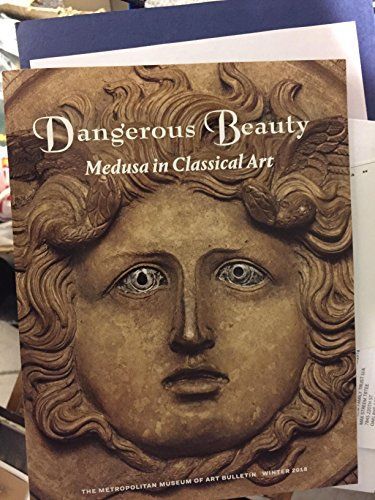
Dangerous Beauty: Medusa in Classical Art The Metropolitan Museum of Art Bulletin, v.75, no. 3 (Winter, 2017)
Medusa, the monstrous Gorgon of Greek mythology whose gaze turned beholders to stone, became increasingly anthropomorphic and feminine beginning in the fifth century B.C. A similar transformation occurred in representations of other female half-human beings from Greek myth, such as sphinxes, sirens, and the sea monster Scylla. Believed to have protective powers, these mythical hybrid creatures were frequently employed on sepulchral monuments, sacred architecture, military equipment, drinking vessels, and the luxury arts. Their metamorphosis was a consequence of the idealizing humanism of Greek art of the Classical period (480–323 B.C.), which understood beauty as the result of harmony and ideal proportions, a concept that influenced not only the representation of the human body but also that of mythological beings. “Dangerous Beauty: Medusa in Classical Art,” on view at The Met until January 6, 2019, is organized by Kiki Karoglou, Associate Curator in the Department of Greek and Roman Art, who is also the author of this Bulletin. p.p1 {margin: 0.0px 0.0px 0.0px 0.0px; font: 14.0px Verdana}